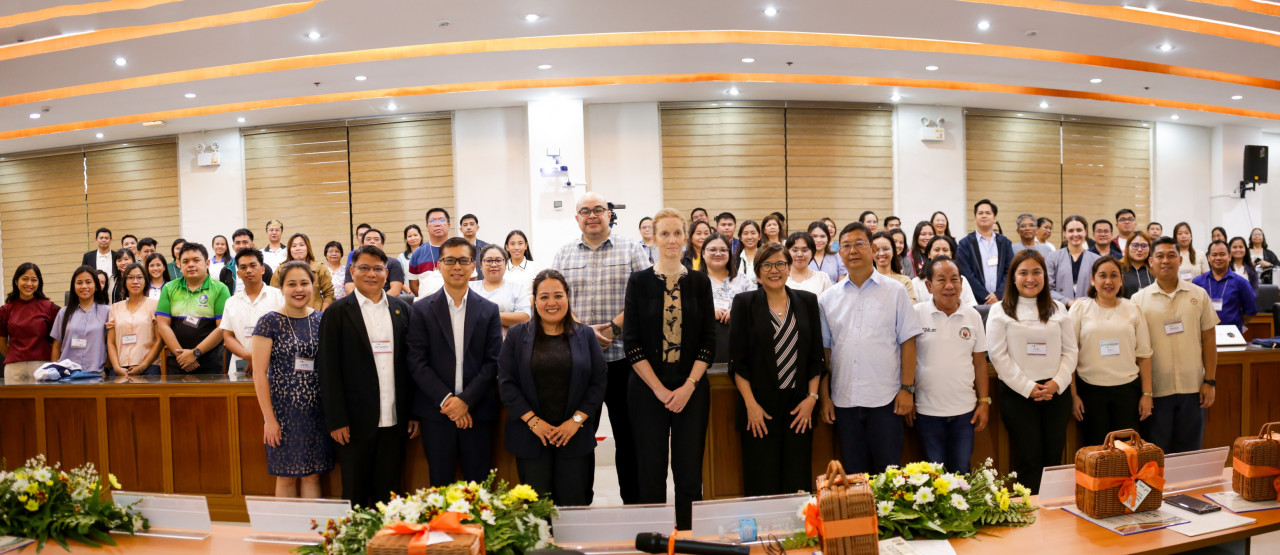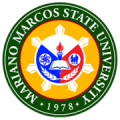
First in PH: Climate-Health Competence Center launched in MMSU
By Kathrina Antonio
To strengthen climate information services and address climate-induced health risks, the Deutsche Gesellschaft für Internationale Zusammenarbeit (GIZ) of Germany, in collaboration with the Climate Change Commission (CCC), University of the Philippines Manila - National Institute of Health (UPM-NIH), and MMSU, formally launched the country’s first Subnational Competence Center (SNCC) for Health on Monday, November 4 at the MMSU National Bioenergy Research and Innovation Center.
The center, part of the South-South Collaboration on Climate Information Services (SSCIS) Project, will be a hub for collaborative research and various climate change services, including risk assessments, adaptation strategies, and community-level mitigation planning.
In his opening remarks, MMSU Vice President for Research, Development, and Innovation Dr. Nathaniel Alibuyog, explained that SNCC will proactively address climate impacts on health by equipping communities with the knowledge and resources to respond effectively. “This center is a step forward in our commitment to address climate-health challenges with actionable, localized information,” he stated.
Dr. Nicole Kranz, GIZ cluster coordination and principal adviser, highlighted the GIZ’s role in supporting regional resilience through focused research and tailored community services, enabling Ilocos Norte to confront climate-induced health risks directly.
During the event, Mr. Jimmy Loro, SSCIS chief advisor, presented an overview of the SSCIS Project, detailing its mission to build climate resilience through localized, data-driven strategies. He emphasized that the project’s main components are relaying usable climate information, establishing tripartite capacity enhancement, and science and evidence-based knowledge products.
Dr. Michelle Ylade, principal investigator at the UPM-NIH Institute of Child Health and Human Development (ICHHD), highlighted key drivers of climate change and climate-sensitive diseases, discussed climate and health research challenges, and explored climate adaptation strategies. She also shared updates on the SSCIS UPM-NIH ICHHD project's ongoing initiatives. Meanwhile, Dr. Kristal-An Agrupis, co-investigator at UPM-NIH ICHHD, emphasized the strong collaboration between UPM-NIH and MMSU, supporting research on translating climate data into actionable health interventions, especially for vulnerable communities.
Recognizing the SNCC as a critical resource for resilience, Assistant Secretary Atty. Romell Antonio Cuenca emphasized the CCC's commitment to local adaptation efforts. “Through this initiative in uniting technical experts in climate science from different fields, we aim to identify key elements of alignment to ensure that climate change research for health fosters a strong, transdisciplinary collaboration among national government agencies, academe, and local government units,” he shared.
Dr. Eva Maria Cutiongco-Dela Paz, Executive Director of UPM-NIH, expressed her enthusiasm for the center’s potential to advance critical research on the health impacts of climate change through its partnership with MMSU. She highlighted SNCC’s commitment to sustained, evidence-based research that aligns climate change response efforts with the specific health needs of affected communities.
Ahead of the launch, chief adviser Edwin Cariño from the Office of Congressman Sandro Marcos, City Government of Batac Mayor Albert Chua, and CHED Commissioner Dr. Shirley Agrupis also shared messages of support, underscoring the center’s crucial role in building local resilience.
Chief adviser Cariño, representing Congressman Sandro Marcos, highlighted the critical challenges posed by climate change and the center’s role in strengthening resilience in Ilocos Norte. “Our farmers and communities face the harsh impacts of climate change each year. This center provides essential resources and insights to support informed decisions for adaptation and resilience,” he said.
Commissioner Shirley C. Agrupis emphasized the center's role in advancing climate education and research in the province. “This center will enable local governments, institutions, and public health agencies to work more effectively across sectors and regions. Informing policies, supporting local adaptation initiatives, and equipping communities with tools to build climate resilience and health research,” she said.
Mayor Chua emphasized that the SNCC serves as a crucial partner in the city’s mission to enhance community resilience, equipping residents with essential tools and knowledge to protect public health from the effects of climate change.
Furthermore, Dr. Cheryll Didi Nellie Obra, OIC dean of the College of Health Sciences, and Prof. Alex Garibay Jr., chairman of the Department of Physical Sciences, introduced the CHIME (Climate and Health Impact Monitoring and Evaluation) project, which focuses on generating localized data on the effects of climate change on health outcomes such as malnutrition, hypertension, and dengue in Ilocos Norte.
The event featured a ribbon-cutting ceremony and a facility tour, giving attendees a closer look at the center’s resources and capabilities. A press briefing concluded the event, allowing media representatives to engage with project leaders on how the SNCC aims to support climate resilience in the region.
The SNCC’s activities continue with a CIS Community of Practice (COP) workshop on November 5. This workshop aims to build a network of regional professionals to integrate climate data into health, agriculture, and community resilience efforts.
The SSCIS Project was designed to empower communities by providing targeted climate information services addressing health and agricultural concerns. By laying the foundation for localized climate research, data-sharing, and practical action plans, SSCIS supports sustained resilience against climate impacts in the region and beyond.
Gallery

Dear Valued Client,
We will be introducing our newly upgraded website on October 31, 2024 – offering faster access, improved navigation, and enriched content for students, faculty, partners, and stakeholders. Experience how we cultivate minds and transform futures at MMSU.

 CAFSD
CAFSD CASAT
CASAT CAS
CAS CBEA
CBEA CCIS
CCIS COE
COE CHS
CHS CIT
CIT CTE
CTE COM
COM CVM
CVM Graduate School
Graduate School




